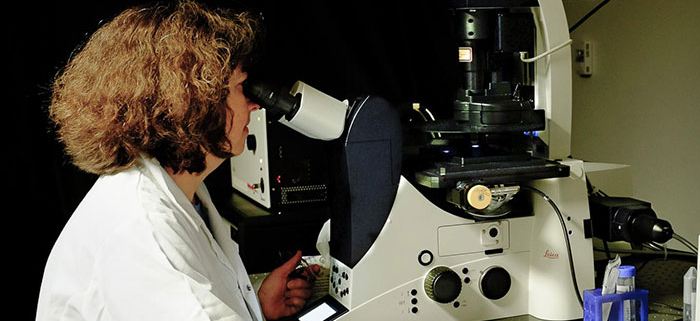13 UC Davis Research Cores Receive $500K in Awards
The UC Davis Office of Research is pleased to announce the recipients of the Cores Continuity Funding Program (CCFP) for the fiscal year 2023- 24. In an effort to maintain and strengthen campus research core capacity, the Office of Research recently awarded $500K in total funding to 13 campus research cores through the CCFP.
Research core facilities and shared research resources are critical components of the research initiatives at UC Davis, providing shared services, expertise, instruments, equipment, and other resources that play a vital role in enriching the research landscape. The CCFP awards will provide one-time support to maintain and strengthen campus research core capacities.
The Office of Research collaborated with the Associate Vice Chancellor’s Cores Working Group, the Research Core Advisory Council, campus leadership and additional stakeholders to develop a funding program for the fiscal year 2024. The program received applications requesting a total of $1.7 million in funding, and selected the highest impact awards to provide an efficient and impactful pathway to maintain research support across the campus.
“These awards will ensure that critical instruments, expertise, and services remain available to support the campus research mission. Research cores and shared resource facilities also play an important role in education and training, and continuity of support is vital to provide researchers access to unique capabilities and expertise across the spectrum of disciplines and practices, said Cristina Davis, associate vice chancellor for Interdisciplinary Research and Strategic Initiatives.
“Office of Research leadership would also like to thank Dr. Isabelle Girard, Director of the Research Core Facilities Program, for her ongoing advocacy and support for sustainable, cutting-edge shared resource facilities across campus.”
Selection Criterion
The cores funded this year were selected based on a number of criteria, such as, impact of the award to the cores in maintaining critical instruments or services, overall research impact of the core, the degree of unique or critical capabilities to support a range of funded projects, the role of the core in education and training, alignment with research priorities, the financial model of support, among others.
Recipients of the Core Continuity Funding Program
The Comparative Pathology Laboratory (CPL) received $73,477 to support a short-term emergency hire to assist a Research Project Coordinator who will contribute to emergency support for management of necropsy services and laboratory samples for pathology clients. CPL is a fee-for-service veterinary medical diagnostic facility within the School of Veterinary Medicine that studies the health, welfare and scientific integrity of animals used commonly in research and teaching. The funding request was made by Denise Imai-Leonard, an associate clinical professor, on behalf of the core.
The Center for Nano Micro Manufacturing (CNM2) within the College of Engineering received $71,006 to fund HVAC repair for lithography, spare ICP tube, high-temp furnace, and direct-write laser system. CNM2 provides the UC Davis campus community with a full spectrum of state-of-the-art micro-nanofabrication equipment, processes and services. The funding request was made by Ryan Anderson on behalf of the core.
The Contained Research Facility (CRF) within the College of Agricultural and Environmental Sciences received $57,541 to provide retrofitting of environmental chambers for continuation of work on agricultural pests and management. CRF, a USDA-certified Biosafety Level 3-Plant, provides quarantine space for research on invasive plant pests or pest plants, regardless of the commodity or ecosystem affected, for researchers in the western US. The funding request was made by Asheley Greenlee on behalf the core.
The MCB Light Microscopy Core (LMC) received $53,100 to support the salary of the LMC technical director, Thomas Wilkop, for four months. LMC within the College of Biological Sciences provides the biological research community with access to state-of-the-art imaging instruments and tools designed to collect low light fluorescent images with high temporal and spatial resolution of both living and fixed organisms and to allow for high-throughput image collection. The funding request was made by Professor Ken Kaplan on behalf of the core.
The Health Sciences District Advanced Imaging Facility within the School of Veterinary Medicine received $47,105 to allow the Core to cover the cost of Leica’s maintenance contract, which has increased substantially. The goal of the core is to provide advanced microscopy and image analysis capabilities to UC Davis researchers. The funding request was made by Project Scientist Ingrid Brust-Mascher on behalf of the core.
The Flow Cytometry Shared Resource (FCSR) in the School of Medicine received $37,761 to aid the purchase of the 2024 service contract for the “Fortessa” five-laser flow cytometer that supports stem cell, cancer and infectious disease researchers. The funding request was made by Bridget Mclaughlin, technical director of the FCSR.
The Center for Aquatic Biology and Aquaculture (CABA) within the College of Agricultural and Environmental Sciences received $30,000 to assist in establishing a backup water system with alarming and monitoring to enhance animal welfare and safety. CABA provides leadership, focus and support to UC Davis researchers in addressing problems associated with California’s cultured and wild aquatic biological resources. The funding request was made by Dean Helene Dillard on behalf of the core.
The Multimodal Imaging Core within the Office of Research received $30,000 to extend the essential service contract for the NIH-funded total-body PET µBioExplorer for study of diseases and disorders. The core provides services to investigators locally, regionally, and nationally, encompassing scales that range from cellular to whole-animal imaging. The funding request was made by Professor Alice Tarantal on behalf of the core.
The Biorepository Shared Resource (BRSR) in the School of Medicine received $30,000 to help in the acquisition of Trimetis Computer Assisted Pathology software system that will extend quality control and tumor identification capabilities. BRSR is specialized in banking a wide variety of specimens including but not limited to whole blood and its derivatives (e.g., plasma, serum), urine, respiratory, and solid tissue. All samples are barcoded, with cold storage monitored 24/7, and meticulously tracked through an electronic system managed by UC Davis Health. The funding request was made by Professor Nam Tran on behalf of the core.
The Center for Genomic Pathology Laboratory (CGPL) in the School of Medicine, received $26,972 to maintain vital services in auto-staining and multiplex-imaging microscopy for cells and tissues. CGPL provides tissue processing/sectioning, routine and special tissue staining, immunohistochemistry, whole slide scanning, database hosting, help with quantitative image analysis, and pathology consulting services. The funding request was made by Qian Chen on behalf of the core.
The Advanced Materials Characterization and Testing (AMCaT) in the College of Engineering was allocated $20,353 in funds to support continuity of user training efforts, course support, and laboratory management for materials characterization as well as to increase the user base by ensuring that the relevant user community across UC Davis and the greater Central Valley are aware of AMCaT’s equipment and capabilities. The funding request was made by Professor Yayoi Takamura on behalf of the core.
The Veterinary Genetics Laboratory in the School of Veterinary Medicine received $15,377 for maintaining service for rapid screening through training and equipment for transferred iScan system. VGL develops and provides high-quality, accurate animal DNA testing services while promoting and enhancing research and education in animal genetics that improves animal health, performance, and well-being. The funding request was made by Robert Grahn on behalf of the core.
The Center for Plant Diversity, a core in the College of Agricultural and Environmental Sciences, received $7,307 for redesigning the website with SiteFarm to ensure continued access to the herbarium collection and resources. The core houses a research and teaching collection of approximately 300,000 voucher specimens of plants, mosses, liverworts, lichens, and algae for verifying species identity and presence in biological research studies. They are also valuable resources for research in a broad range of basic and applied biological, agricultural, and environmental sciences, as well as social sciences and cultural studies. The funding request was made by Professor Daniel Potter on behalf of the core.







